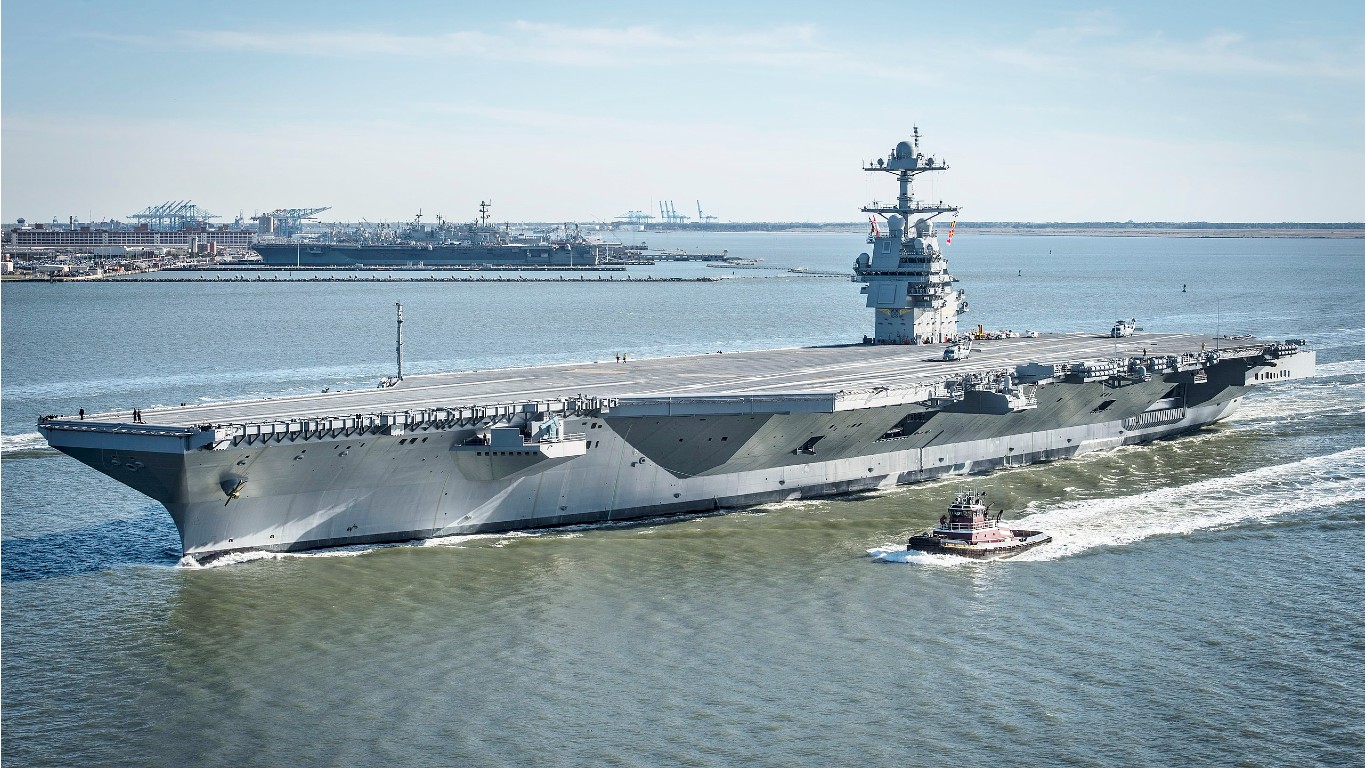
The current U.S. Navy fleet comprises 243 vessels, both surface and underwater, distributed among 19 distinct classes. These classes encompass a range of specialized roles, including aircraft carriers, assault ships, transport docks, submarines, and more. Each class is designed to fulfill combat, surveillance, or transportation functions, and they vary in crew capacity. For instance, the Cyclone-class patrol ships accommodate approximately 30 crewmembers, while aircraft carriers boast a substantial crew complement of around 5,000 individuals. (These are the world’s fastest warships.)
To determine the vessels with the largest crews in the U.S. military, 24/7 Wall St. reviewed a list of active U.S. military naval vessel classes from Military Factory, an online database of military vehicles, aircraft, naval vessels, and more. We also used other sources with naval vessel lists, including Military-Today, and ranked the vessel classes by the crew that is required to effectively operate each vessel. Data on total displacement and the year each vessel entered service also came from Military Factory. Supplemental information on how many vessels are in service in each class came from the World Directory of Modern Military Warship.
The U.S. Navy boat classes with the largest crews are both aircraft carriers. The Nimitz-class nuclear-powered supercarrier can hold up to 5,680 people and is one of the largest warships in the world. Ten Nimitz carriers are in service. The Nimitz, however, is currently being replaced by the newer Ford-class aircraft carrier, which is designed for a crew of 4,660 and boasts heightened battle capabilities and lower maintenance costs. Just one Ford carrier is in service so far. These are the U.S. Navy’s newest ships and submarines.
With crews of over 2,700, the America-class and Wasp-class amphibious assault ships are also among the largest in terms of personnel. These resemble small aircraft carriers that allow for vertical and short takeoff and landing of helicopters. They also have a well deck for the use of landing craft.
Click here to see the largest crews on US Navy ships and submarines.
19. Cyclone-class patrol ship
> Crew: 30
> Total displacement: 335 tons
> Number in US fleet: 10
> Year entered service: 1983
[in-text-ad]
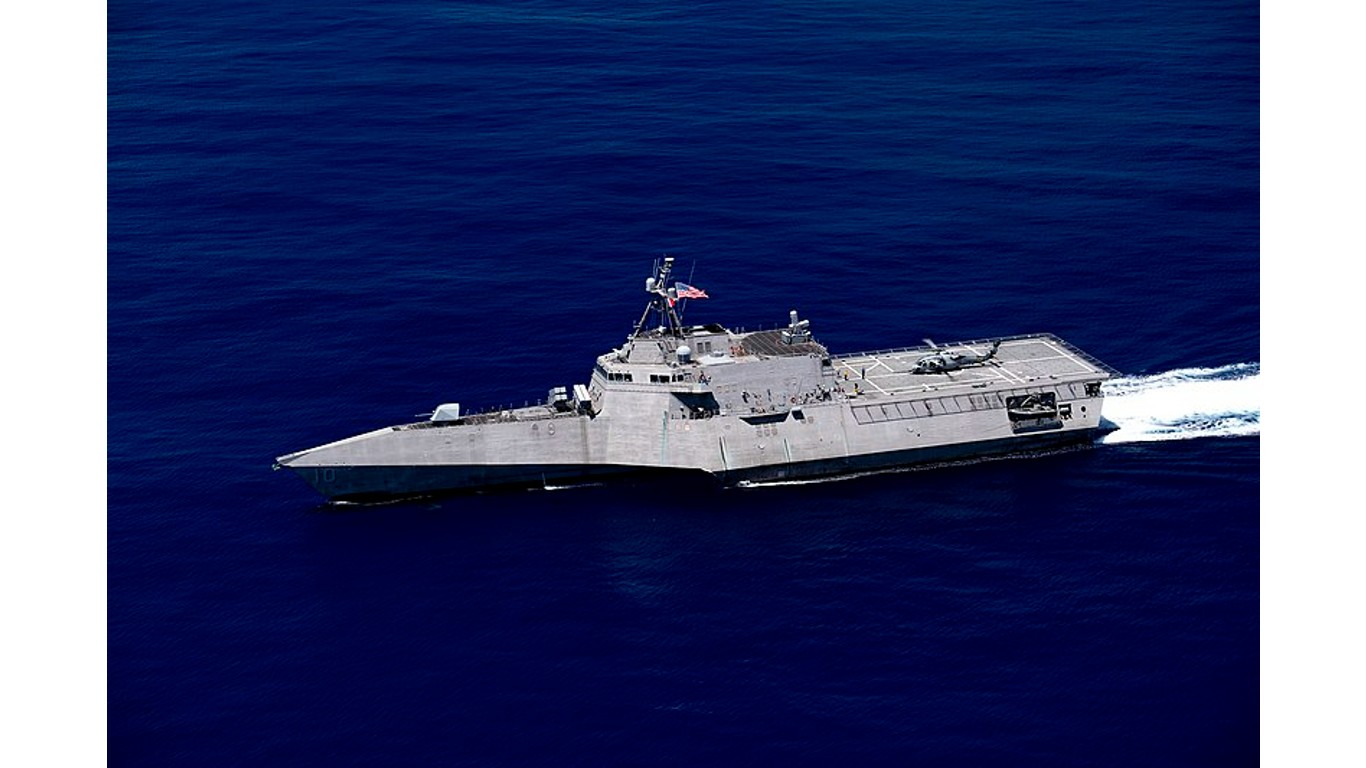
18. Independence-class corvette
> Crew: 75
> Total displacement: 3,300 tons
> Number in US fleet: 12
> Year entered service: 1976
17. Avenger-class mine countermeasures ship
> Crew: 81
> Total displacement: 1,367 tons
> Number in US fleet: 8
> Year entered service: 2017
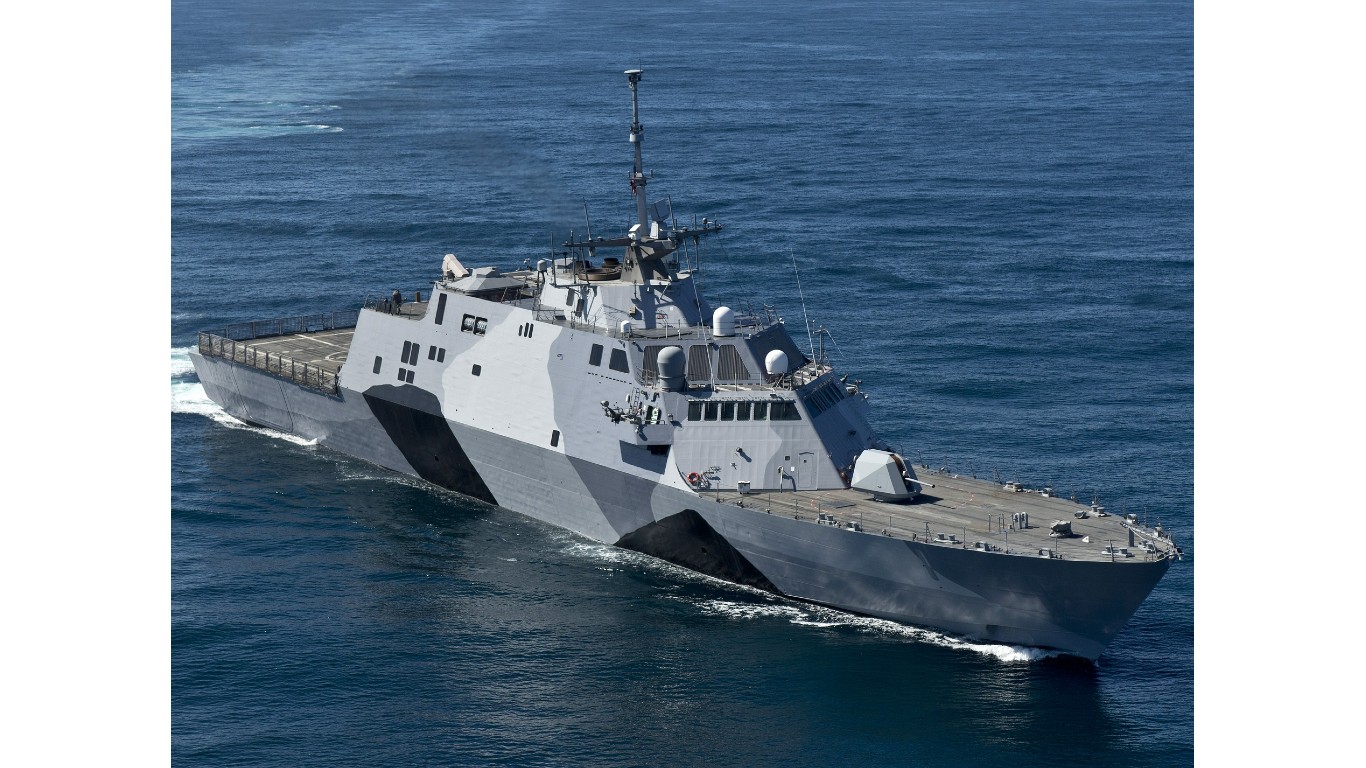
16. Freedom-class littoral combat ship
> Crew: 125
> Total displacement: 3,000 tons
> Number in US fleet: 9
> Year entered service: 1991
[in-text-ad-2]
15. Los Angeles-class submarine
> Crew: 134
> Total displacement: 7,800 tons
> Number in US fleet: 28
> Year entered service: 2006
14. Virginia-class submarine
> Crew: 135
> Total displacement: Surface: 7,800 tons, Submerged: 8,700 tons
> Number in US fleet: 19
> Year entered service: 1987
[in-text-ad]
13. Zumwalt-class guided missile destroyer
> Crew: 140
> Total displacement: 14,500 tons
> Number in US fleet: 2
> Year entered service: 1993
12. Seawolf-class submarine
> Crew: 141
> Total displacement: Surface: 8,600 tons, Submerged: 9,140 tons
> Number in US fleet: 3
> Year entered service: 2004
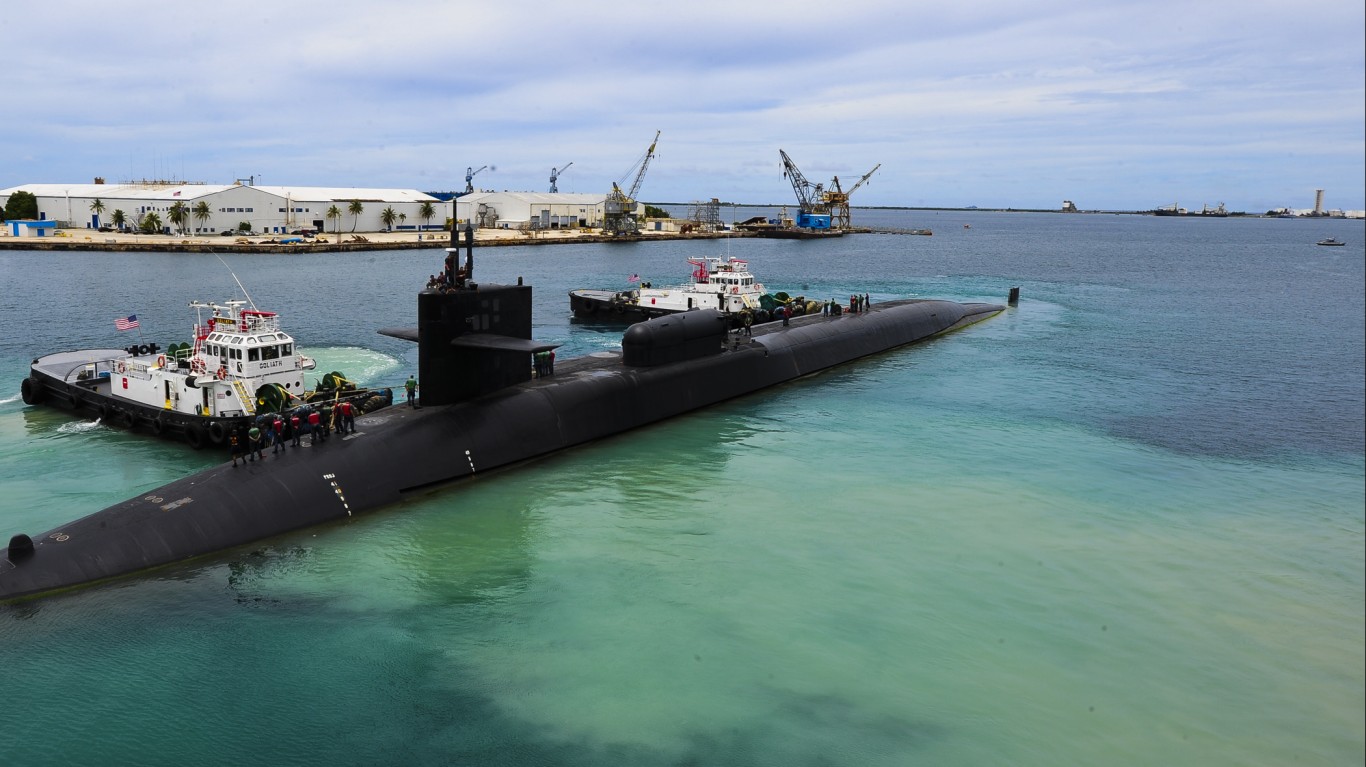
11. Ohio-class submarine
> Crew: 153
> Total displacement: Surface: 16,765 tons, Submerged: 18,750
> Number in US fleet: 18
> Year entered service: 1985
[in-text-ad-2]
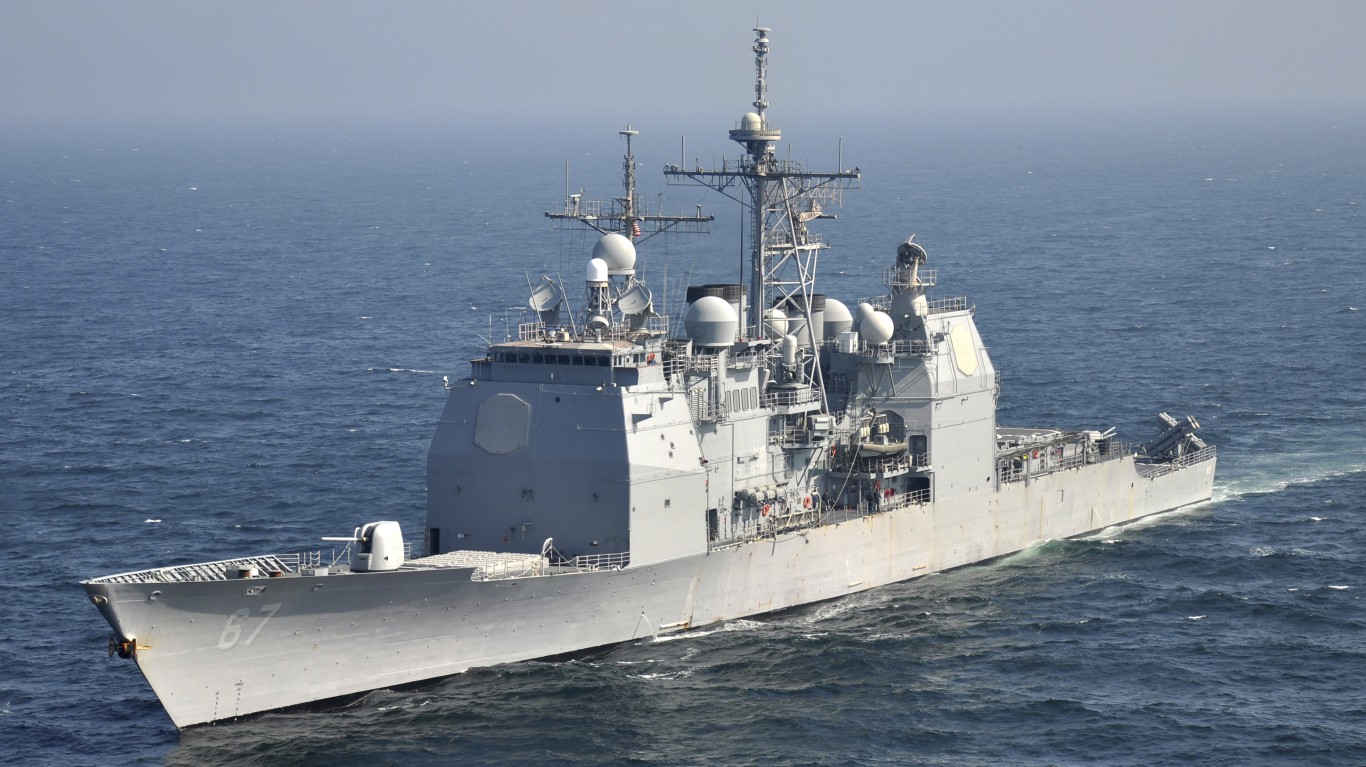
10. Ticonderoga-class cruiser
> Crew: 330
> Total displacement: 9,600 tons
> Number in US fleet: 22
> Year entered service: 1983
9. San Antonio-class amphibious transport dock
> Crew: 361
> Total displacement: 25,000 tons
> Number in US fleet: 11
> Year entered service: 2016
[in-text-ad]
8. Arleigh Burke-class guided missile destroyer
> Crew: 380
> Total displacement: 9,215 tons
> Number in US fleet: 68
> Year entered service: 2010
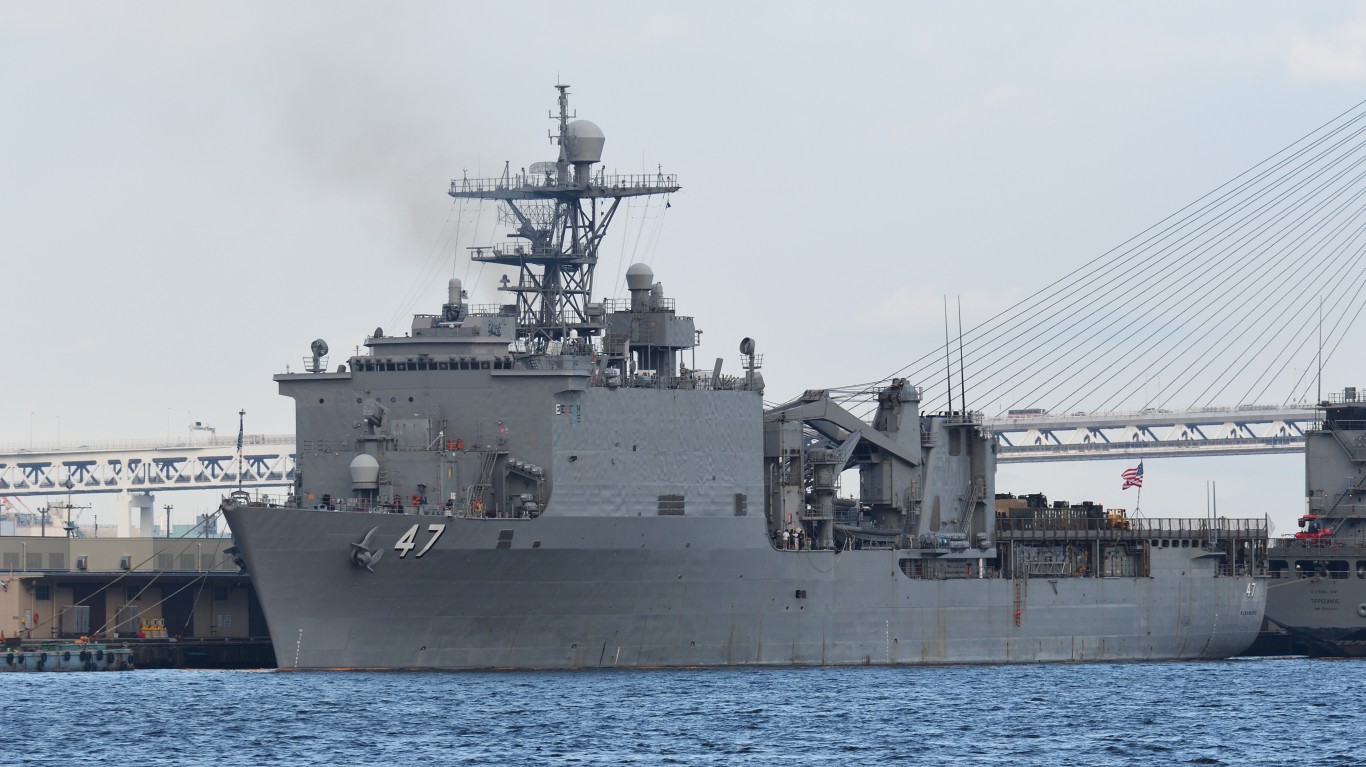
7. Whidbey Island-class dock landing ship
> Crew: 413
> Total displacement: 16,740 tons
> Number in US fleet: 7
> Year entered service: 1970
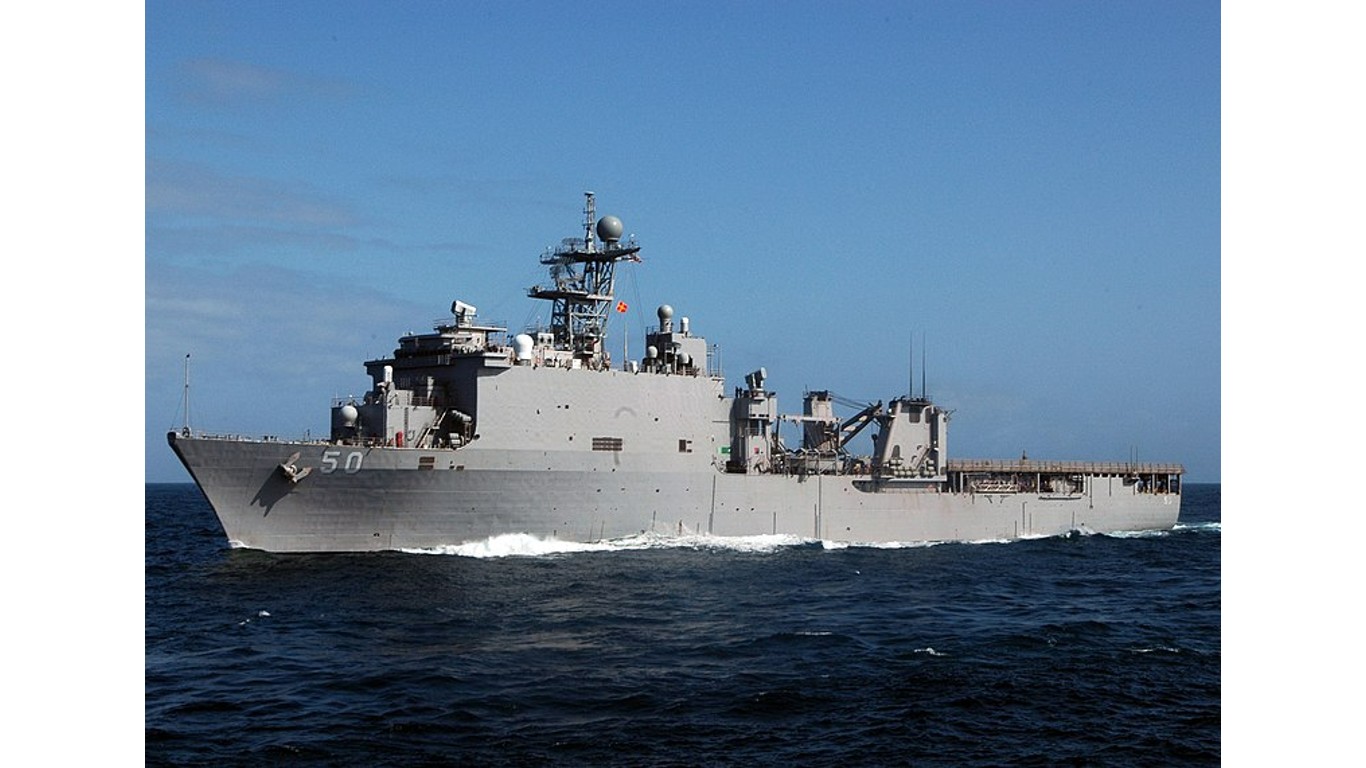
6. Harpers Ferry-class dock landing ship
> Crew: 825
> Total displacement: 19,600 tons
> Number in US fleet: 4
> Year entered service: 1989
[in-text-ad-2]
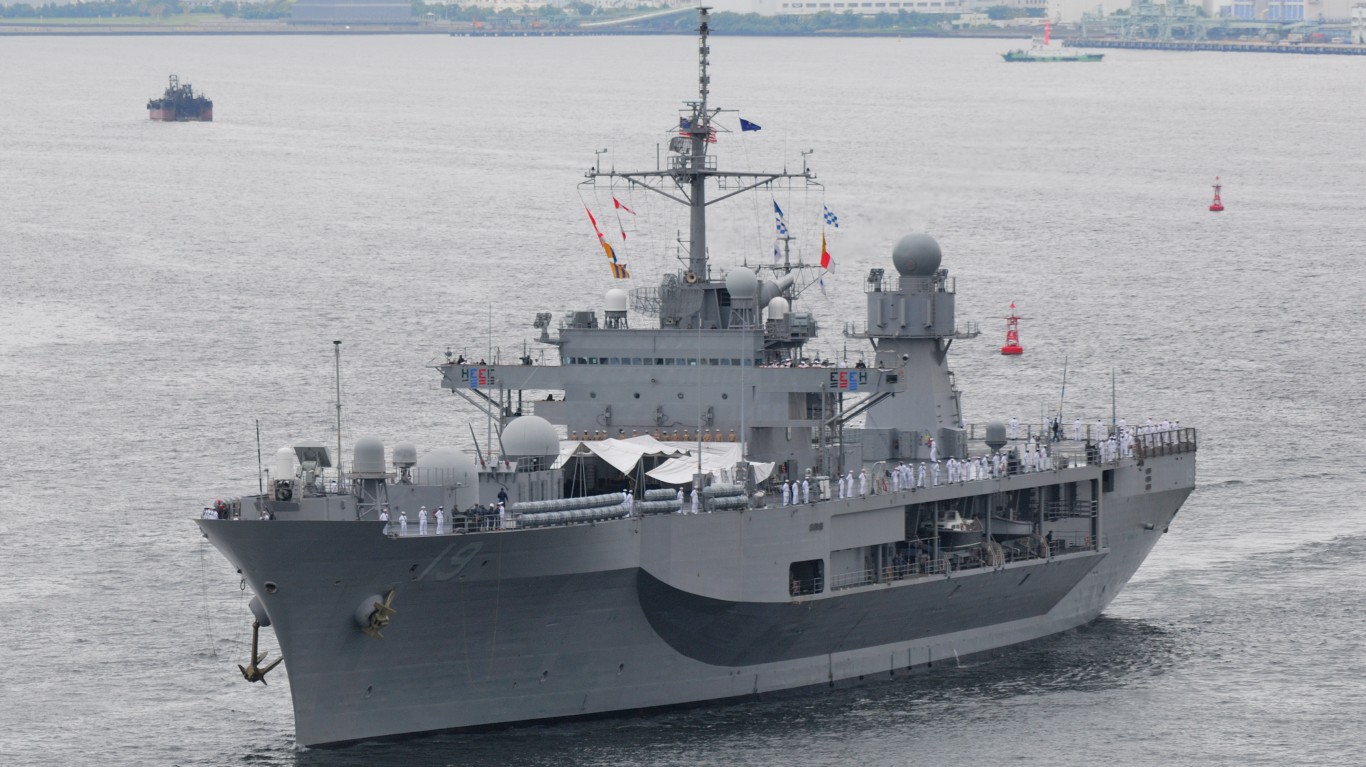
5. Blue Ridge-class command ship
> Crew: 842
> Total displacement: 18,875 tons
> Number in US fleet: 2
> Year entered service: 1997
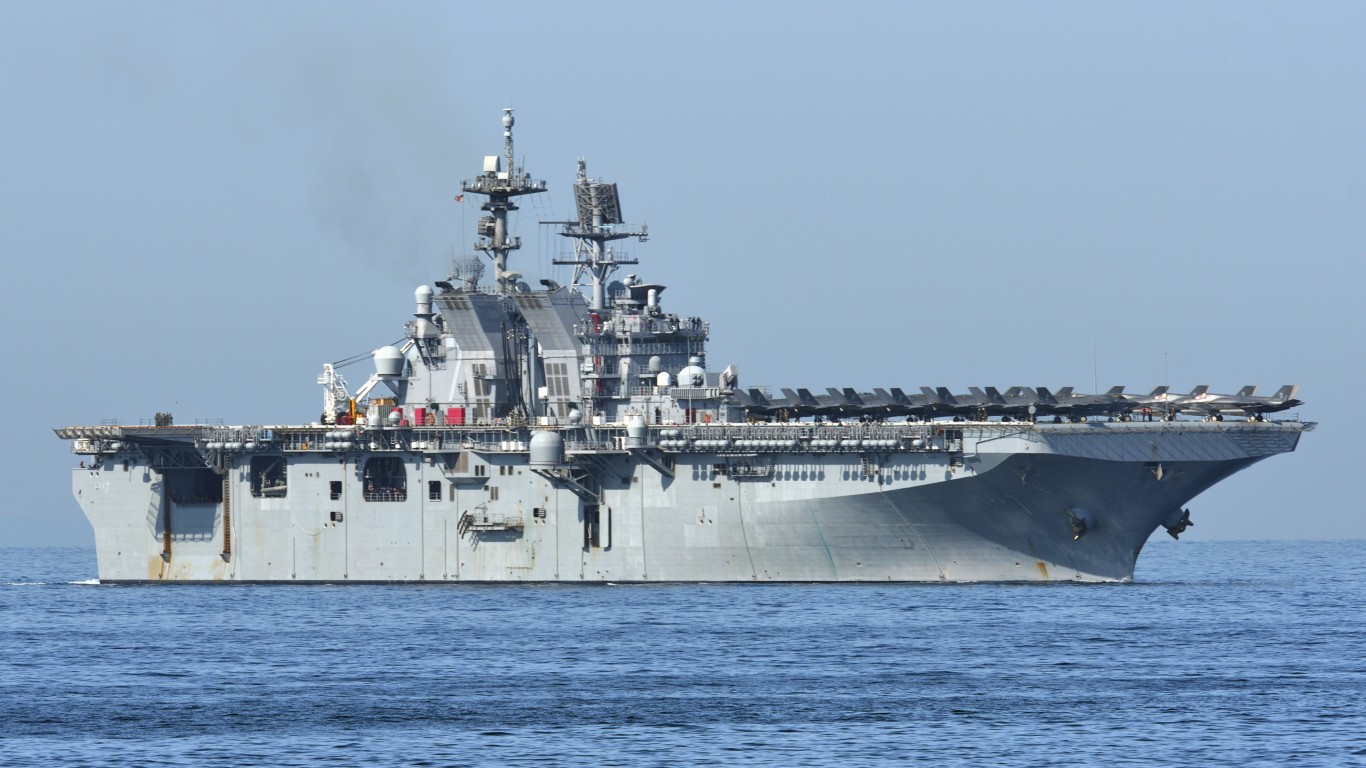
4. America-class amphibious assault ship
> Crew: 2,745
> Total displacement: 46,000 tons
> Number in US fleet: 2
> Year entered service: 2014
[in-text-ad]
3. Wasp-class amphibious assault ship
> Crew: 2,979
> Total displacement: 41,182 tons
> Number in US fleet: 7
> Year entered service: 1995
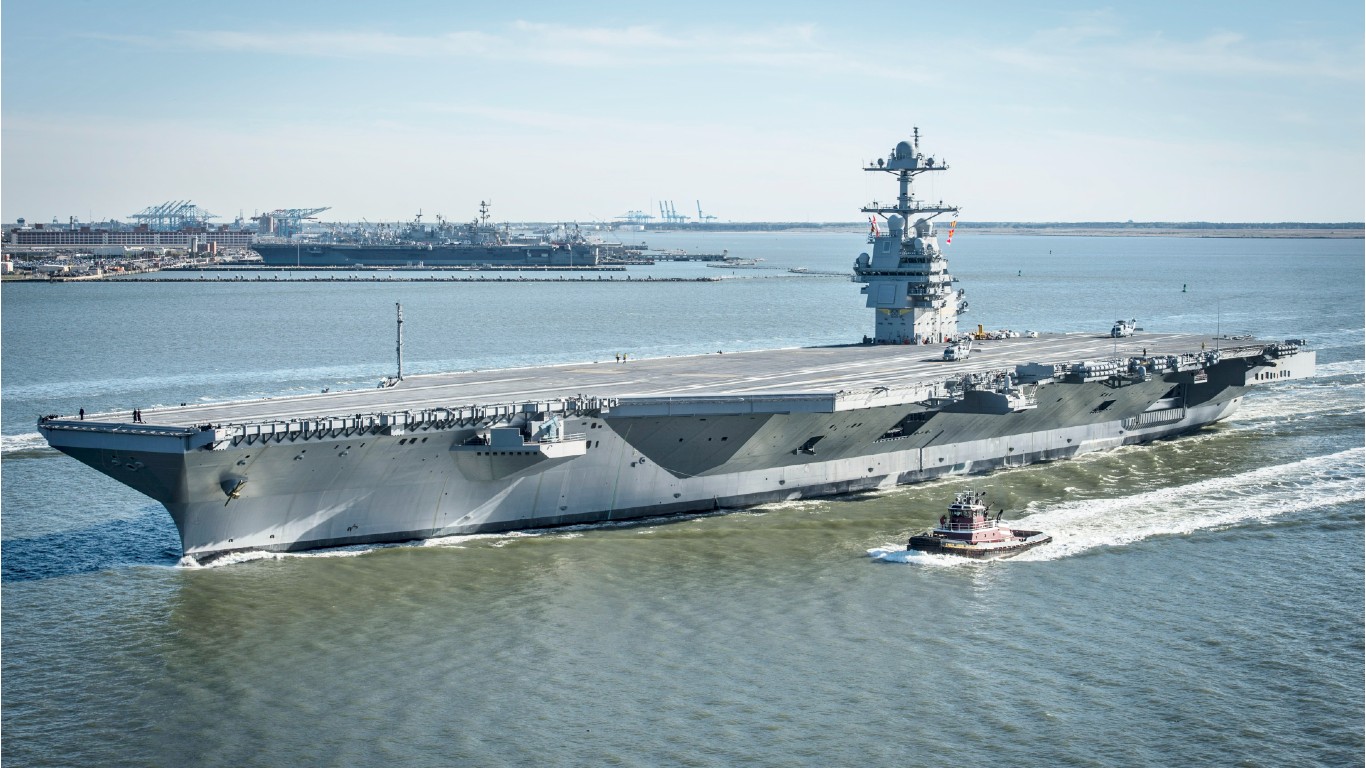
2. Ford-class aircraft carrier
> Crew: 4,660
> Total displacement: 112,000 tons
> Number in US fleet: 1
> Year entered service: 2008
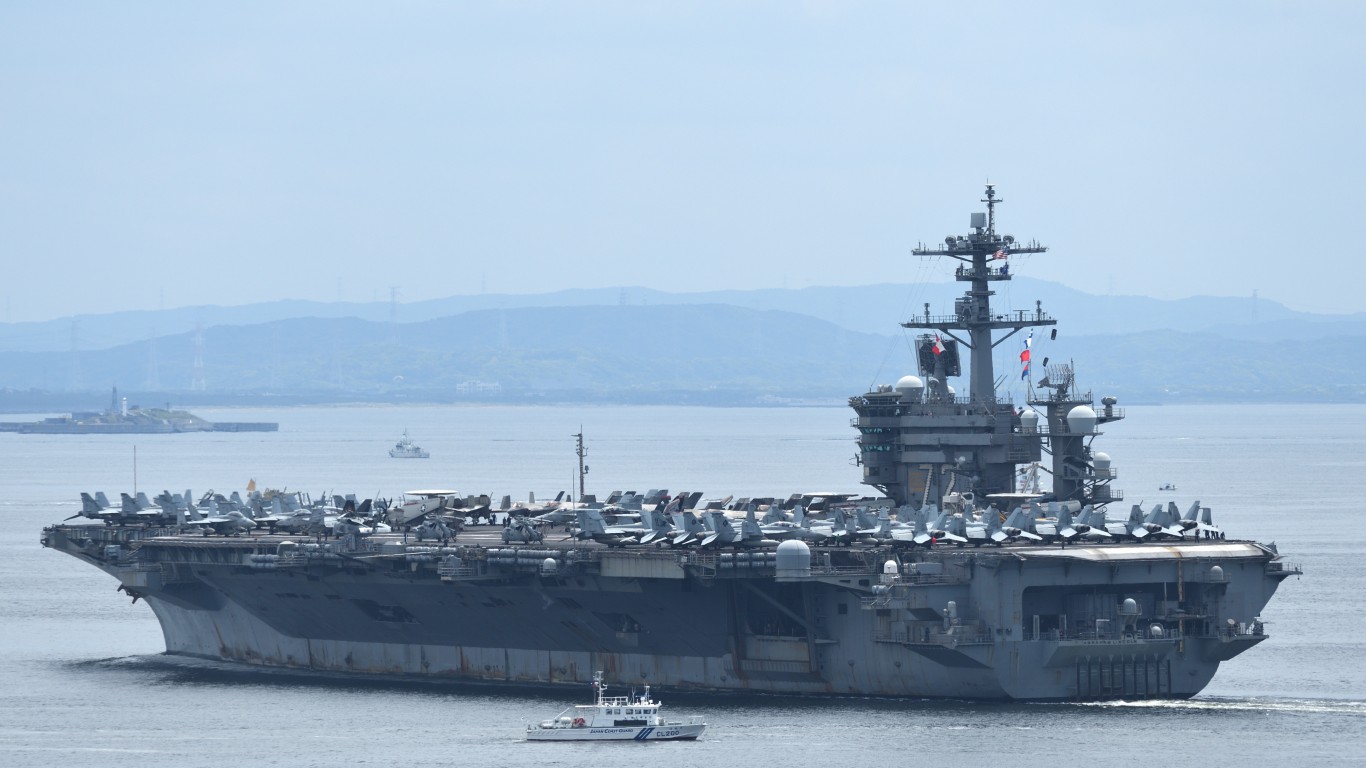
1. Nimitz-class aircraft carrier
> Crew: 5,680
> Total displacement: 114,000 tons
> Number in US fleet: 10
> Year entered service: 1975
In 20 Years, I Haven’t Seen A Cash Back Card This Good
After two decades of reviewing financial products I haven’t seen anything like this. Credit card companies are at war, handing out free rewards and benefits to win the best customers.
A good cash back card can be worth thousands of dollars a year in free money, not to mention other perks like travel, insurance, and access to fancy lounges.
Our top pick today pays up to 5% cash back, a $200 bonus on top, and $0 annual fee. Click here to apply before they stop offering rewards this generous.
Flywheel Publishing has partnered with CardRatings for our coverage of credit card products. Flywheel Publishing and CardRatings may receive a commission from card issuers.
Thank you for reading! Have some feedback for us?
Contact the 24/7 Wall St. editorial team.
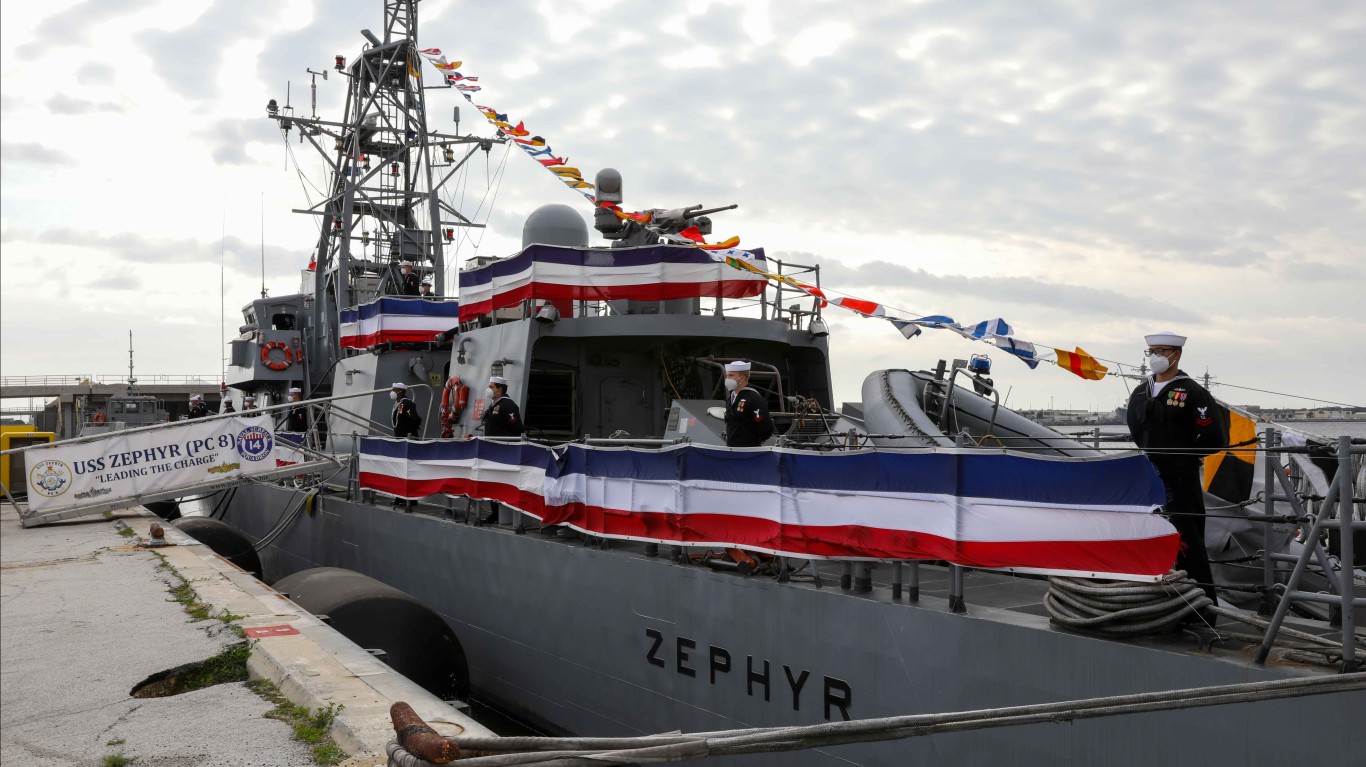
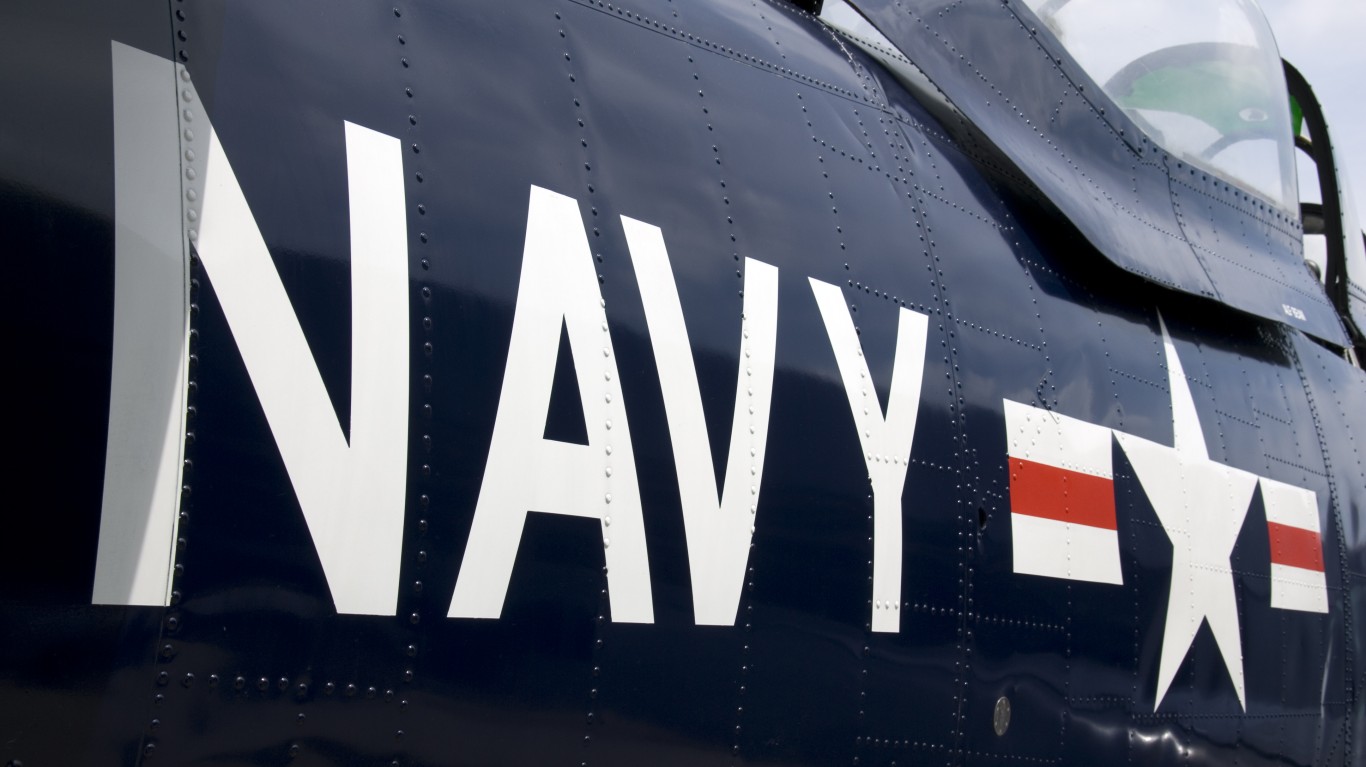 24/7 Wall St.
24/7 Wall St.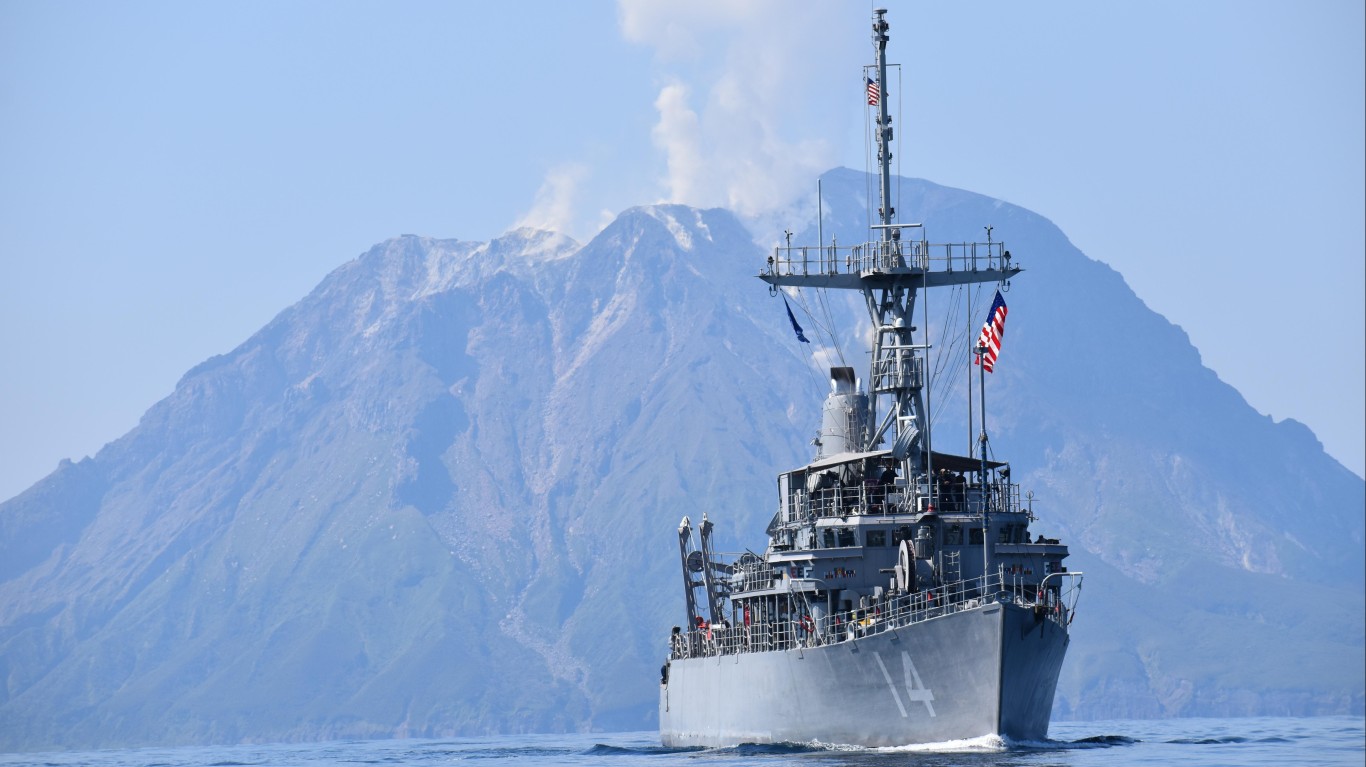
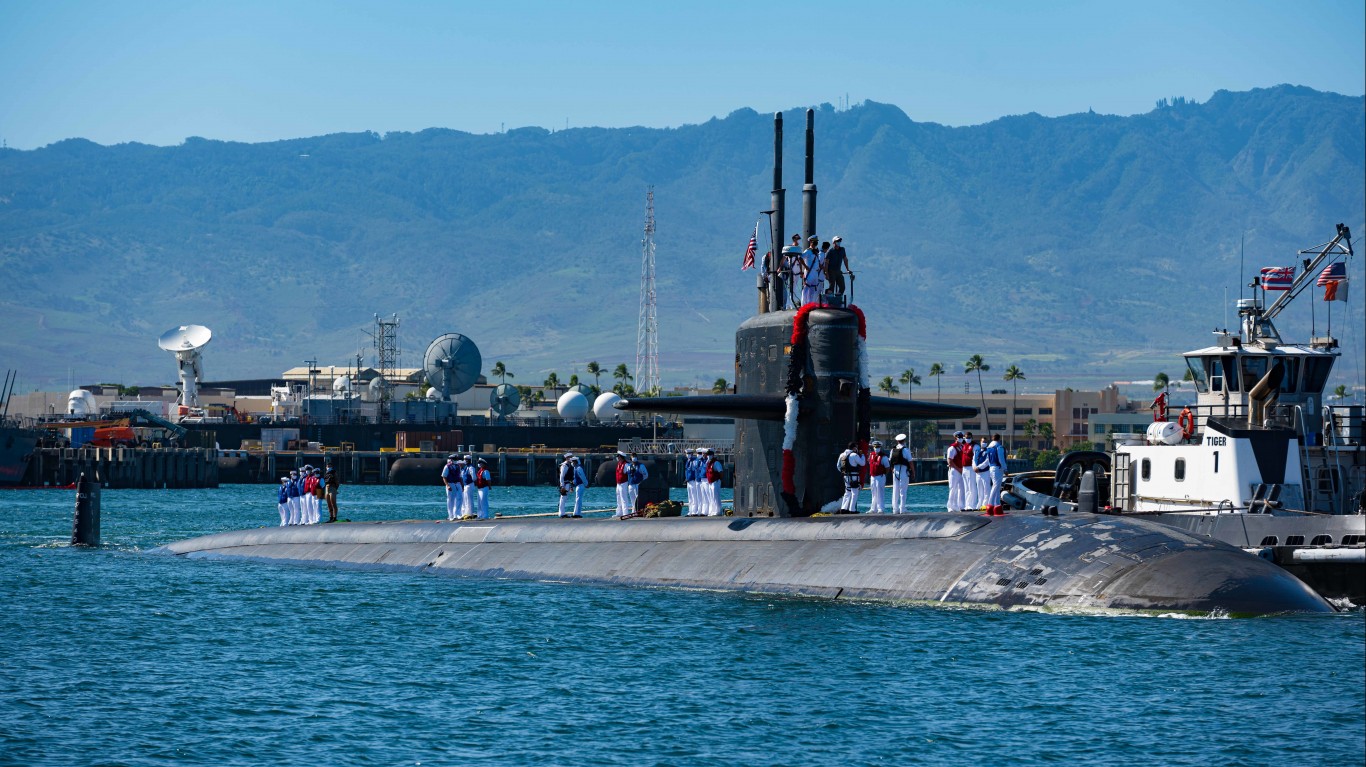
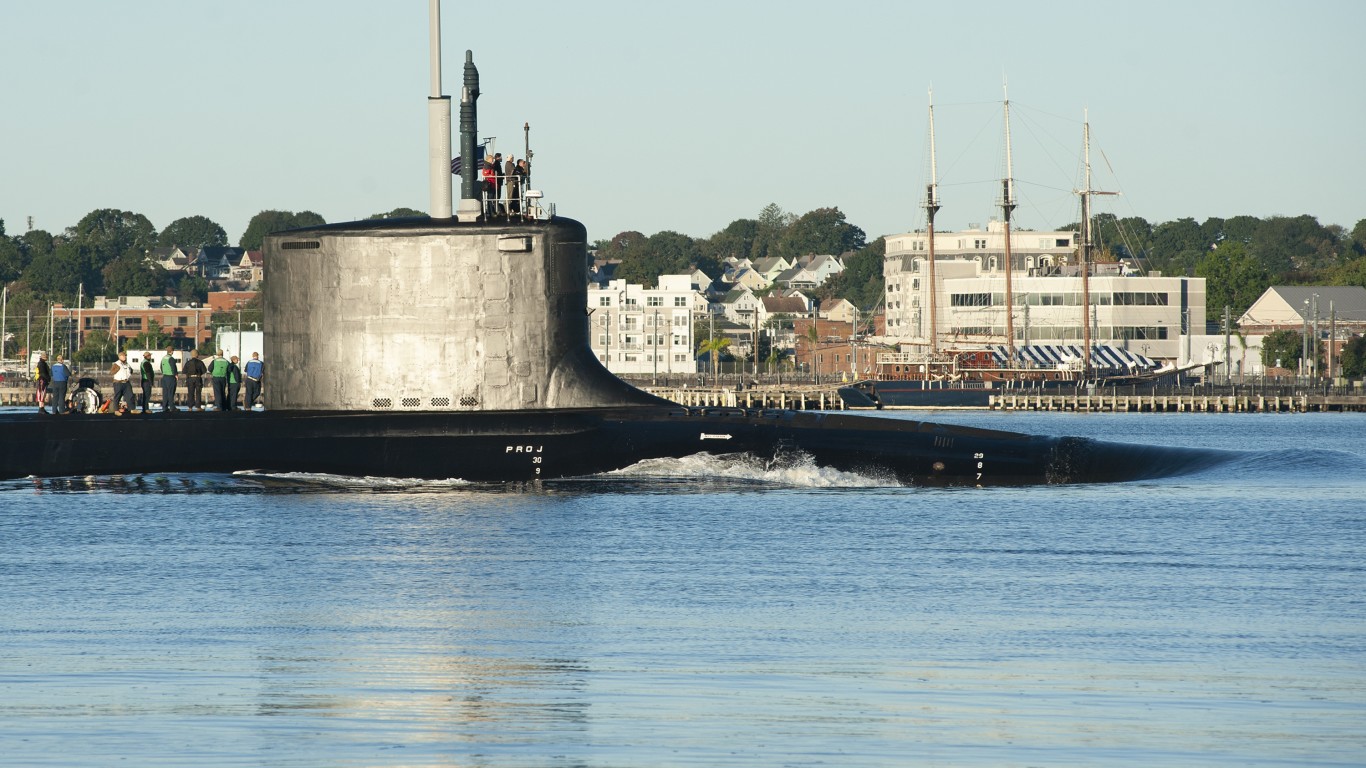
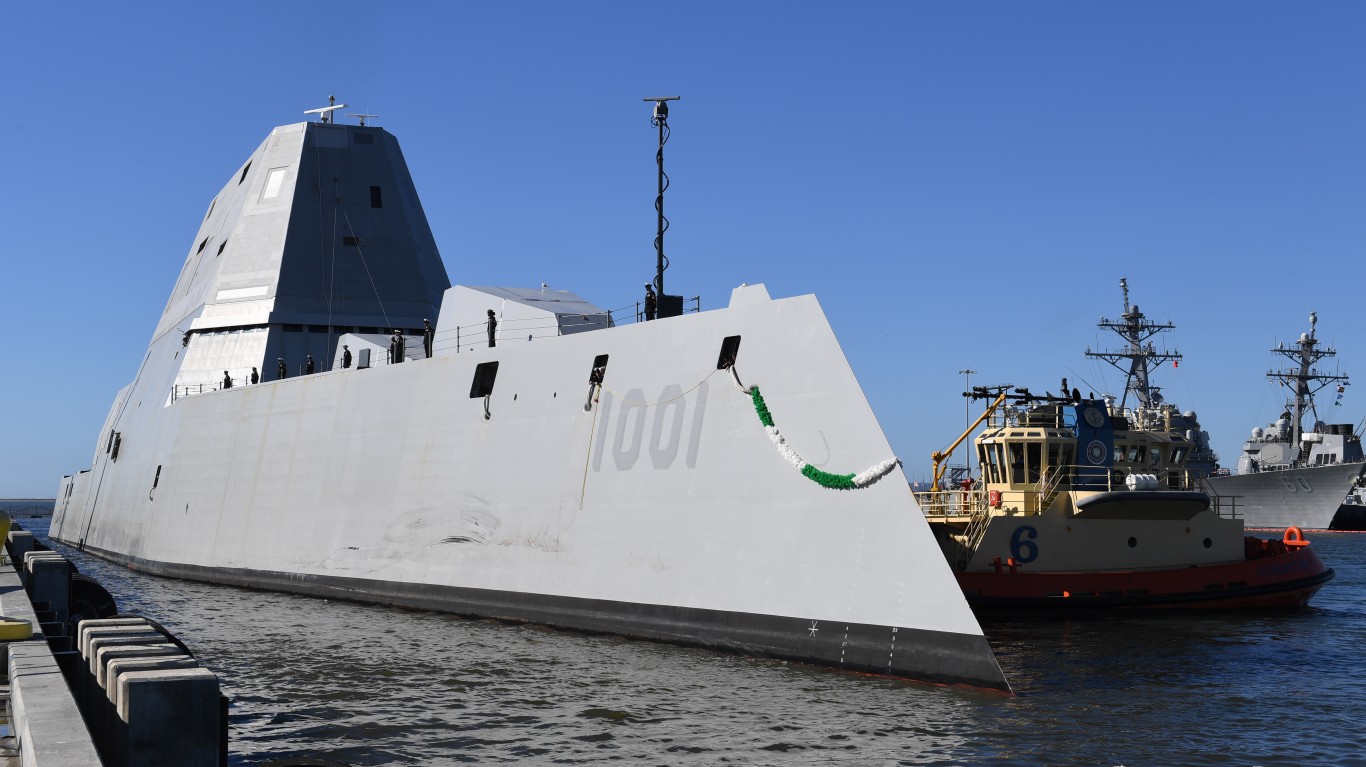
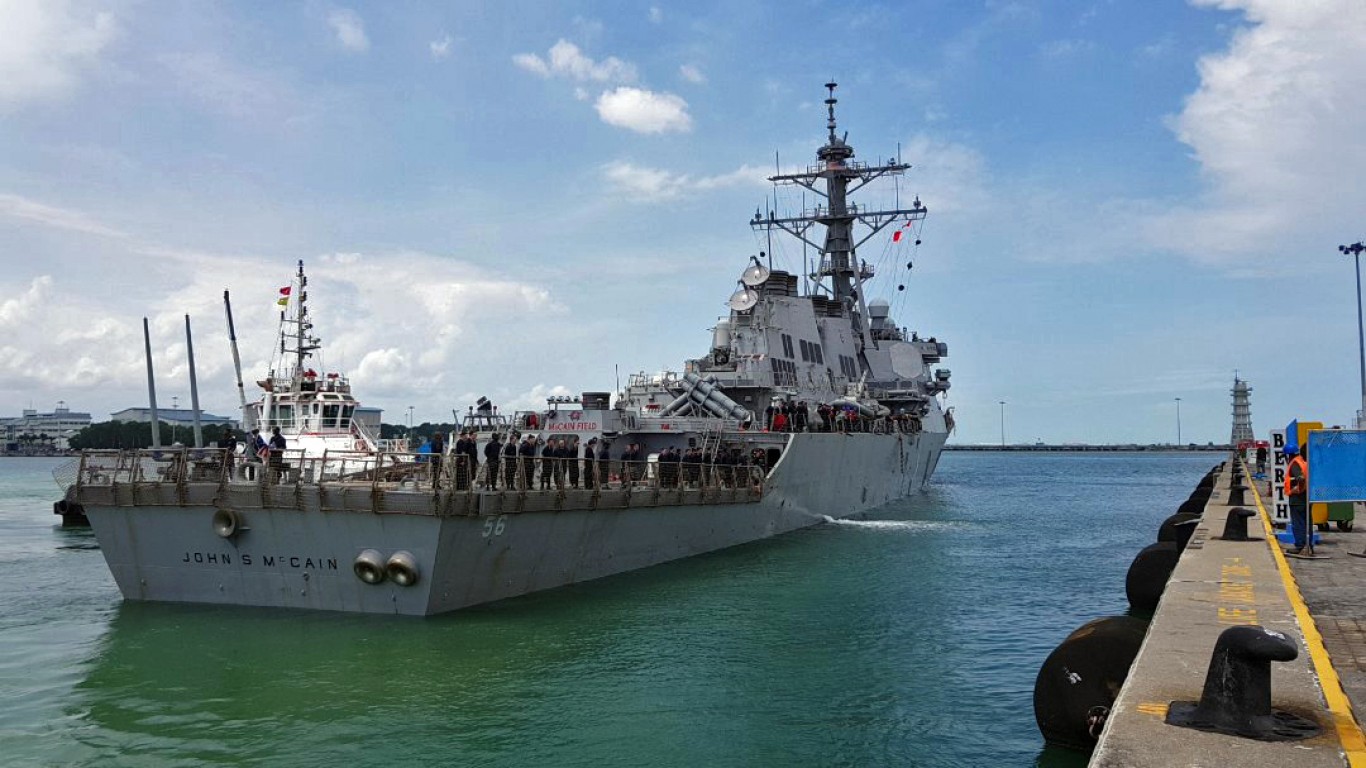 24/7 Wall St.
24/7 Wall St.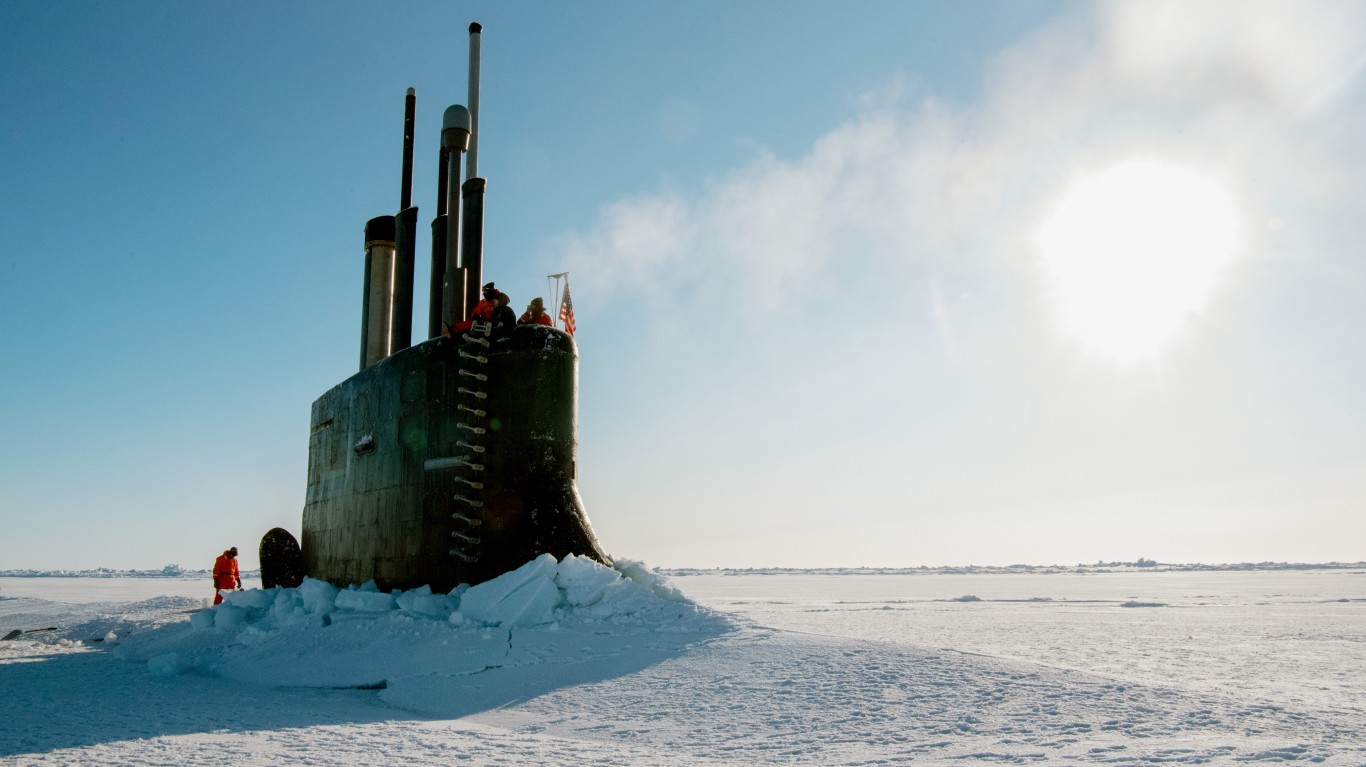
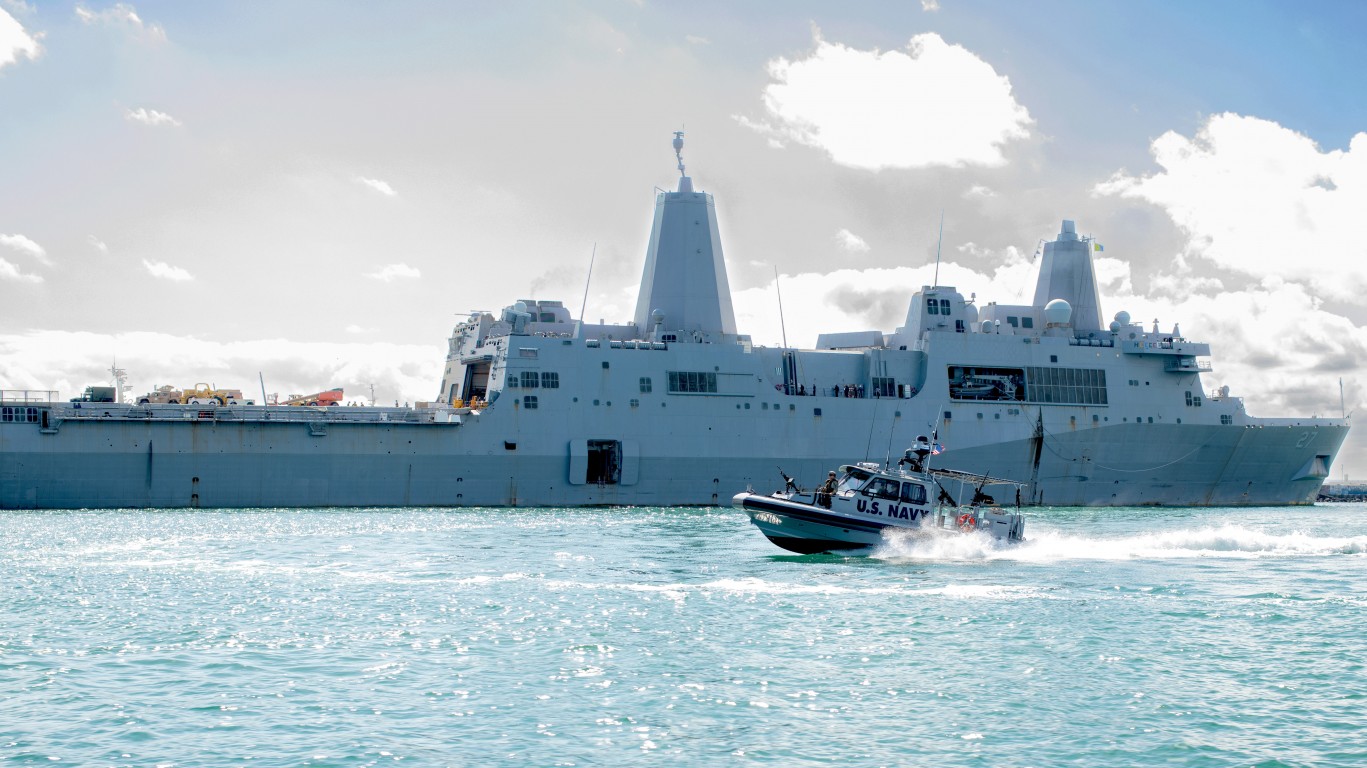
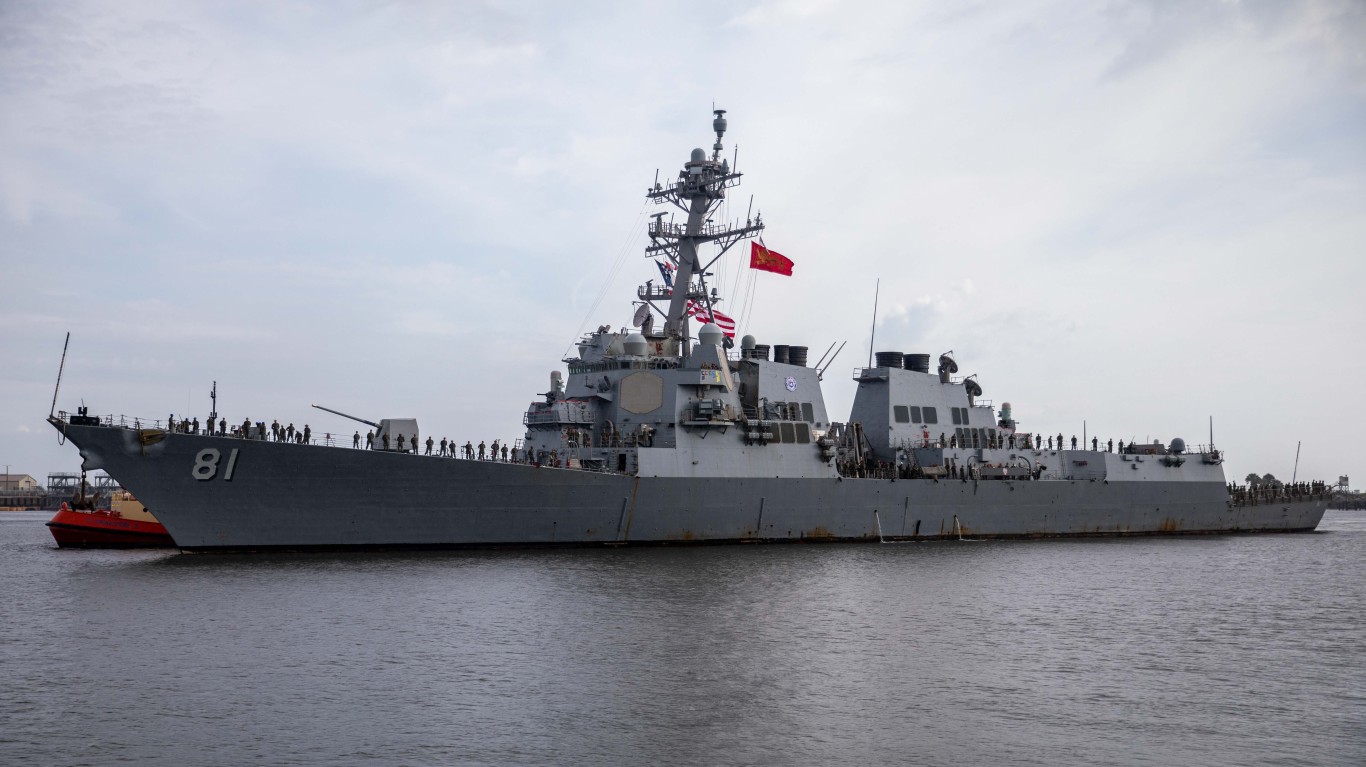
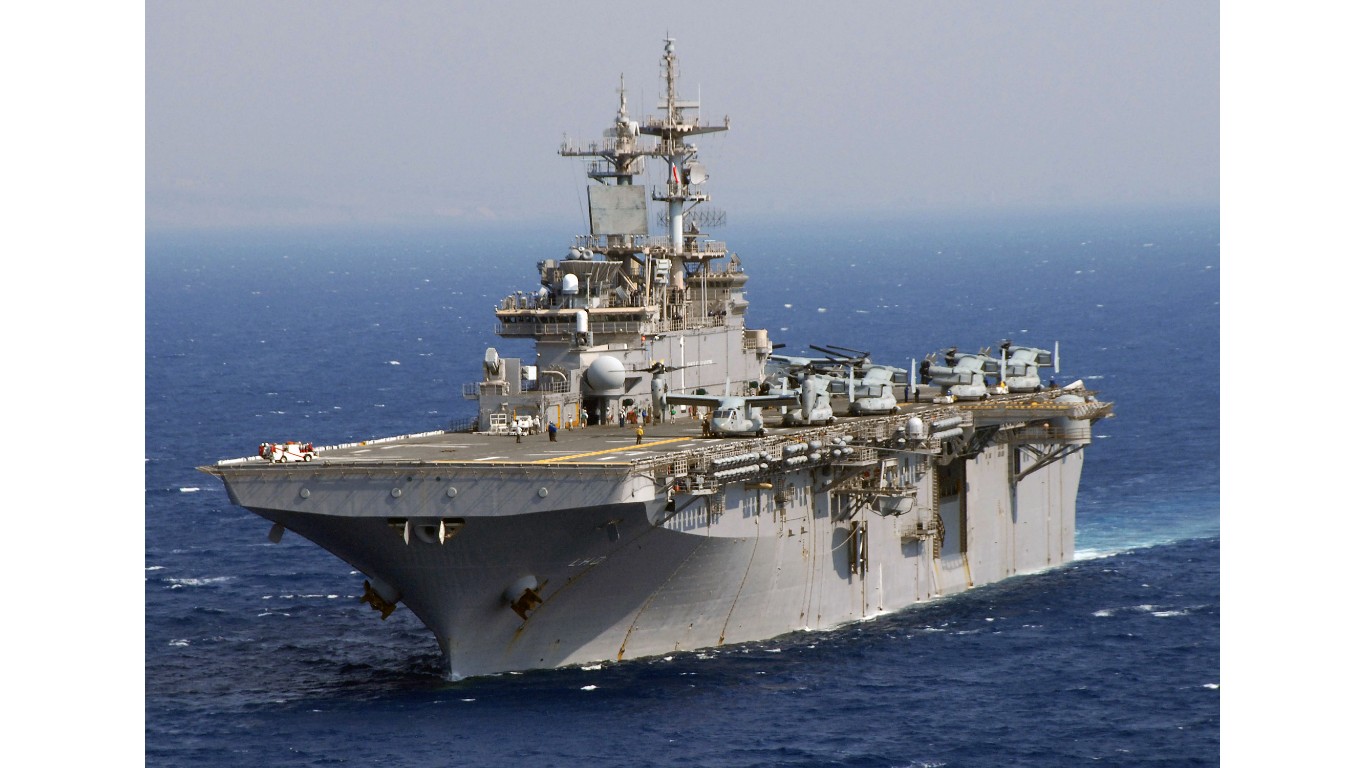
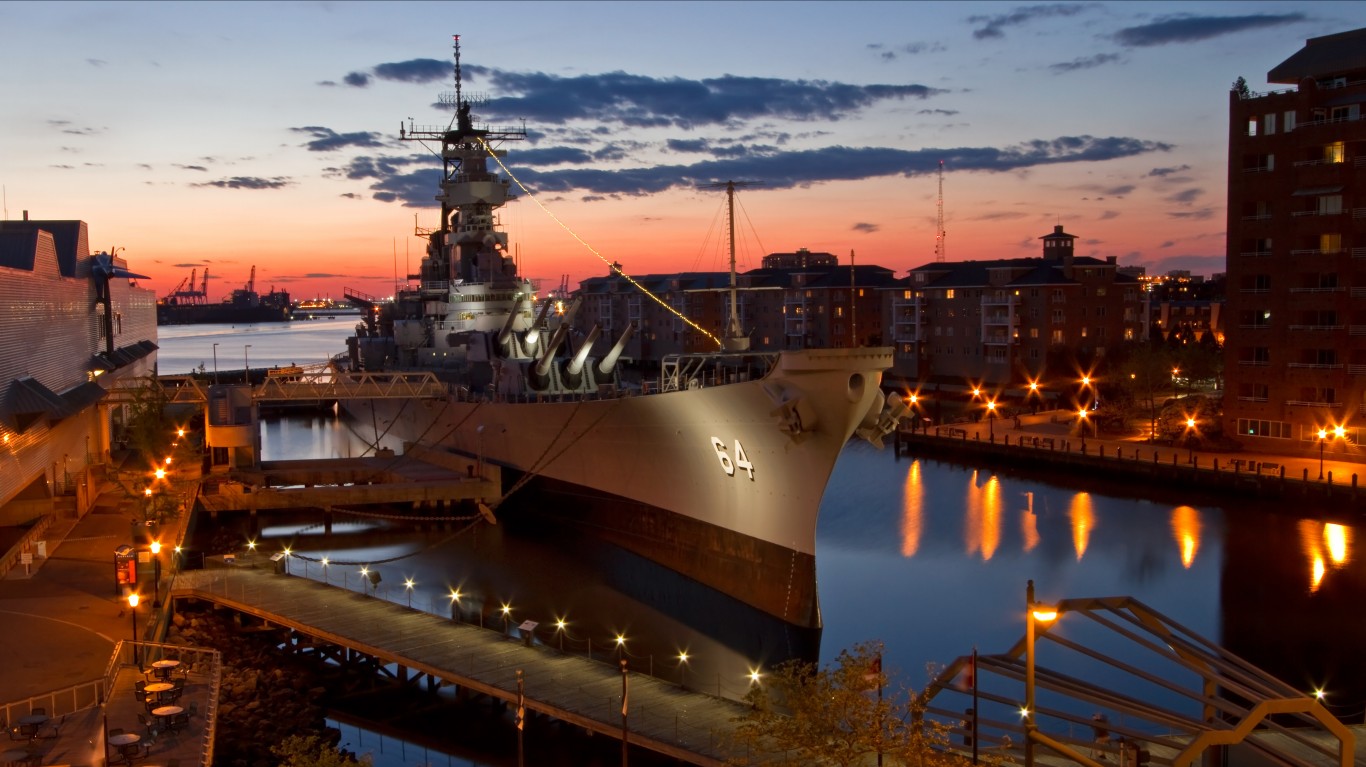 24/7 Wall St.
24/7 Wall St.